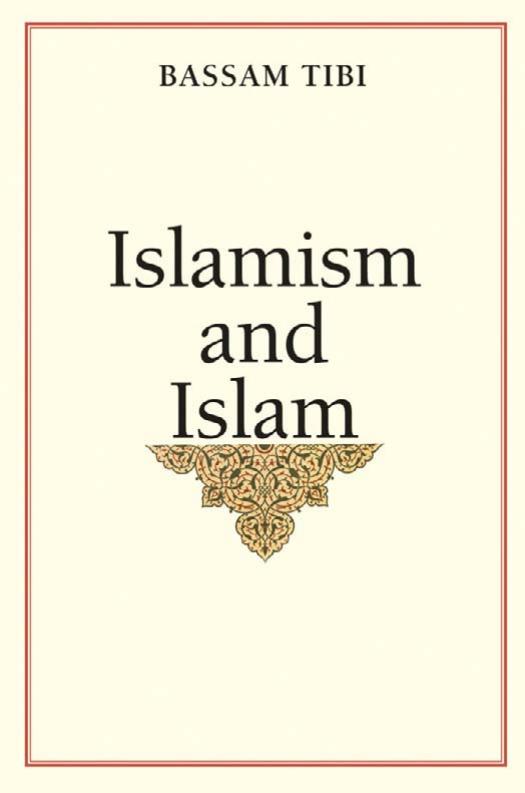Islamism and Islam by Bassam Tibi

Author:Bassam Tibi [Tibi, Bassam]
Language: eng
Format: epub, pdf
Tags: Social Science, Islamic studies, Political Science, Human Rights, Discrimination & Race Relations, International Relations, General, Religion, Islam, Theology
ISBN: 9780300160147
Google: HyEyLXcIXgUC
Publisher: YaleUP
Published: 2012-05-22T21:52:26+00:00
Shariâatization and the Universality of Law
In todayâs international society,47 in our state of simultaneous globalization and cultural fragmentation,48 there is a need for civilizational bridging. The return of the sacred should not prevent us from defending the universality of secular law and making it acceptable to Muslims. Shariâa has always been a pendulum between ethics and politics. Ethically, the Qurâan includes some opening for freedom of faith. We read the provision la ikraha fi al-din (âno compulsion in religion,â sure 2, verse 256), and elsewhere the Qurâan teaches believers to say to others: lakum dinakum wa liya din (âYou have your religion and I have mine,â sure 109, verse 6). A problem in Islam is that all issues are subject to regulation by shariâa, which is identified as divine law. Unlike other religions, whose religious scholars are basically theologians, in Islam we find learned men of religion (ulema, or scribes) acting as sacral jurists or faqihs, not as mutakallimun, theologians. Medieval Islam did contain a religious tradition of kalam (theology). There were Mutazilite theologians who were âdefenders of reason,â but they never succeeded in becoming mainstream. The fiqh (Islamic sacral jurisprudence) has always possessed a monopoly over the interpretation of religious affairs in Islam. For these jurists a legal claim to freedom of faith does not exist, because this contradicts their reading of the Qurâan. It is a historical reality that shariâa law does not recognize freedom of faith. It considers any deviation by a Muslim to be apostasy subject to the penal code. The punishment is death. For non-Muslims the lack of freedom of faith is even tougher. Muslims are challenged to accept the pluralism of religions, but the shariâatization of Islam makes pluralism impossible. The universality of reason, to act as a bridge between faiths, has to be secular.
In fact, there is no globally accepted universal law. Humanity is divided into a number of religion-based civilizations, each with its own distinct legal traditions. Civilizations comprise a great diversity of local cultures. Yet we now live in a global system with an international law based on one legal tradition that claims to be universal and to merit general acceptance. Though international law originates in a Western legal tradition, it is worth maintaining as a secular law in this age of the return of the sacred. If each civilization were to revive its legal traditions on the basis of its own religion and to perceive international law as âalien legal instructions,â as happens now in Islamic civilization with Saudi-Wahhabi promotion,49 then the world would fragment into warring camps. As it is, the Islamists propose a binary system. They regard their shariâa as universal, as Westerners regard their secular law, and thus create mutually exclusive universalisms.
As a Muslim immigrant in the West, I have seldom heard a Western legal scholar question the universal character of European law. When the term âlawâ is employed in any law school, it means the tradition that evolved within Europe based on Roman origins. Culturally, this understanding of law prevails only in the Western hemisphere.
Download
This site does not store any files on its server. We only index and link to content provided by other sites. Please contact the content providers to delete copyright contents if any and email us, we'll remove relevant links or contents immediately.
| Hadith | History |
| Law | Mecca |
| Muhammed | Quran |
| Rituals & Practice | Shi'ism |
| Sufism | Sunnism |
| Theology | Women in Islam |
The History of Jihad: From Muhammad to ISIS by Spencer Robert(2628)
Nine Parts of Desire by Geraldine Brooks(2368)
The Turkish Psychedelic Explosion by Daniel Spicer(2356)
The First Muslim The Story of Muhammad by Lesley Hazleton(2271)
The Essential Rumi by Coleman Barks(2045)
1453 by Roger Crowley(2030)
The Last Mughal by William Dalrymple(1857)
Trickster Travels: A Sixteenth-Century Muslim Between Worlds by Davis Natalie Zemon(1847)
Muhammad: His Life Based on the Earliest Sources by Martin Lings(1646)
God by Aslan Reza(1641)
by Christianity & Islam(1632)
A Concise History of Sunnis and Shi'is by John McHugo(1567)
No God But God by Reza Aslan(1545)
Magic and Divination in Early Islam by Emilie Savage-Smith;(1534)
The Flight of the Intellectuals by Berman Paul(1503)
Nothing to Envy by Barbara Demick(1450)
Art of Betrayal by Gordon Corera(1430)
What the Qur'an Meant by Garry Wills(1394)
Getting Jesus Right: How Muslims Get Jesus and Islam Wrong by James A Beverley & Craig A Evans(1342)
